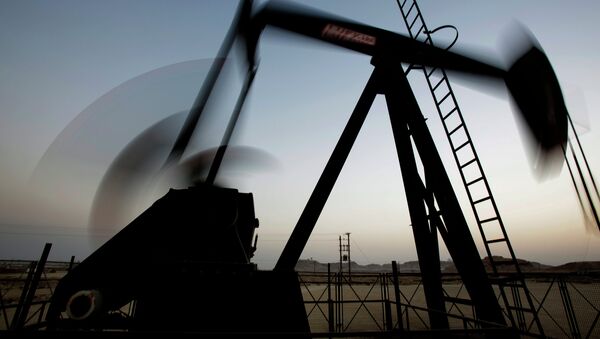"Clearly the biggest losers are the oil producers all around the world. But the ones that are hurt the most are the ones that depend largely on 'petro-dollars,'" Cinquegrana said, adding that "Venezuela immediately comes to mind, but also Iran and to a lesser extent Russia could be hit pretty hard."
Speaking of the factors contributing to the continuing fall in oil prices, the analyst named increased US oil output as one of the reasons.
"Unrest in Libya, ISIS [also known as the Islamic State] in Iraq are two headlines that may have normally sent prices higher, but with US production rising the market has become a bit more insulated," he told Sputnik.
According to Cinquegrana, slipping oil demand, especially from China and India, has also contributed to global oil prices spiralling down, together with the dollar standing at a nine-year high against the euro.
"Countries that purchase oil in other currencies get more value when the dollar is weaker as oil is priced in dollars per barrel. When the dollar rallies, as it has been doing, those purchasing in other currencies do not necessarily have the buying power they once had," the analyst explained.
On Wednesday, the price for Brent crude fell below $50 a barrel, marking the lowest point since 2009 and a 50 percent drop from summer 2014 levels.
In November 2014, the Organization of the Petroleum Exporting Countries (OPEC) decided not to change its current levels of oil output, triggering a further drop in global oil prices.


